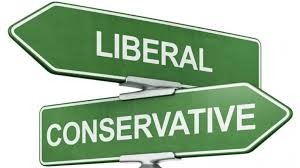Media Regulation across Nations- Experiences of various countries and its outcome
All administrations, because they comprehend the political and social prominence of the media, cultivate some dogmas aimed at regulating and monitoring them. Obviously, the technique by which they try to achieve such control contrasts. Some countries have taken direct dictatorial control of media through state ownership and the banning of opposition media. But most nations employ media regulation that is non-authoritarian in nature, mingling government influence with free market forces.
The role of the U.S. government in this regard has always been infinitesimal compared to many others. For example, in Europe, broadcast regulation began early as an extension of protocols affecting wireless telegraphy. In contrast to the chaos created by American free-market commercialism in the early days of radio, European nations adopted an approach that involved direct government operation of the media as a technique to avoid signal interference. The result was a system that: underlined public service, was national in appeal, was lobbied, and was non-commercial.
In many nations, this tactic meant adopting a state monopoly system. The BBC, established in 1992, was one such system. Within four years, Italy, Sweden, Ireland, Finland, and Denmark had hackneyed the BBC model. In the European model, producers outside the state-run system often created the actual programming. The point of government control was to ensure that broadcasting could disseminate quality programming that served the public interest.
However benignly run, government media present complications. In some countries, hullabaloo regarding the political content of programs has afflicted public service broadcasting. France, for example, has engaged in acrimonious debates about the impartiality of news coverage. Because of a variety of reasons ranging from such debates to changes in technology and, finally to shifts in political winds, European broadcasting has undergone dramatic changes since the 1980s. The modification has been toward more open competition between public broadcasters and commercial stations. Regulators have announced advertising into public stations and have appended new commercial stations. The results have been upsurges in advertising, increases in imported programming (which is often cheaper to air that original domestically produced programming), and the consolidation of media companies into ever grander corporate conglomerates that buy up previously independent producers.





20 Comments. Leave new
nice one
Well done 🙂
media freedom is always a debatical issue..!
Very well written!
Media regulation has been explained very well good work 😀
i didnt know that it has suck a greater effect form countries to countries 😀
Feeded me up with new info 😀
Good work
;D
Nicely written.
Great work!
nice
very well written and i must say i am impressed the way the language is used in your articles ,
i have seen two of them and they both are quite good 😀
liked this one too !
keep going 🙂
Nice
very informative and very new to read
great.
good work!!
Good job!
Well written!
Very well written. Brilliant articulation.
media regulation has become a necessity due to the range of influence it has. A very well researched article.
I appreciate the work
liked it
Well articulated.